By Lisa Bland –
Erica Stahl is a public interest environmental lawyer. She grew up in Vancouver and worked at the Canadian Environmental Law Association for two years after completing Law School in Toronto where she obtained a joint Master’s degree in environmental studies and law. She now works for West Coast Environmental Law in Vancouver as the liaison lawyer for the company’s legal aid services.
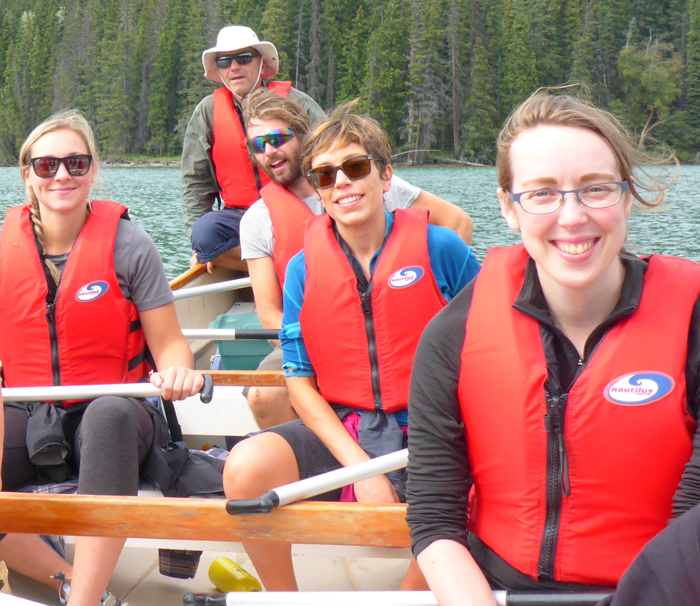
Erica decided to combine her interest in the environment with law because she has always loved nature. “I grew up around the spectacular mountains, forest, and ocean living in Vancouver, and I decided to turn my passion into a job,” she says. “I was involved in the environmental activist sector during my undergrad, and I decided to go to law school because I wanted to continue doing environmental activist work but with more job stability and the ability to effect a different kind of change.”
Erica was drawn to the work the Rivershed Society of BC (RSBC) was doing throughout the Fraser River watershed and wanted to learn about and connect with the organization. “I think the work RSBC is doing is inspiring and so important.” she says. “It’s exactly where we need to be going—shifting and growing people’s sense of community from the idea of cities and towns to their larger riversheds, which is a more logical sense of place.”
Erica believes that more concrete actions are needed to protect the Fraser River watershed instead of a piecemeal or patchwork approach. “I think we need to be using strong, targeted, and measurable protections in specific riversheds,” she explains. “If it’s successful as a model, it could potentially be put into place more widely across the province and used as an inspiration for people in other jurisdictions as well.”
Erica decided to apply to the RSBC’s Sustainable Living Leadership Program (SLLP) to take her advocacy work into the field while learning about the Rivershed Society’s work and the Fraser River Basin. “The key thing that drew me to the SLLP was the opportunity to get out from behind my desk, to be out on the water and connecting with the land and communities that I spend my time working to protect,” she says. “It is important to me to build relationships with the river, the land, and the wonderful people in every community we visited along the Fraser. I feel that public interest lawyers need to be out with the people and places they serve.”
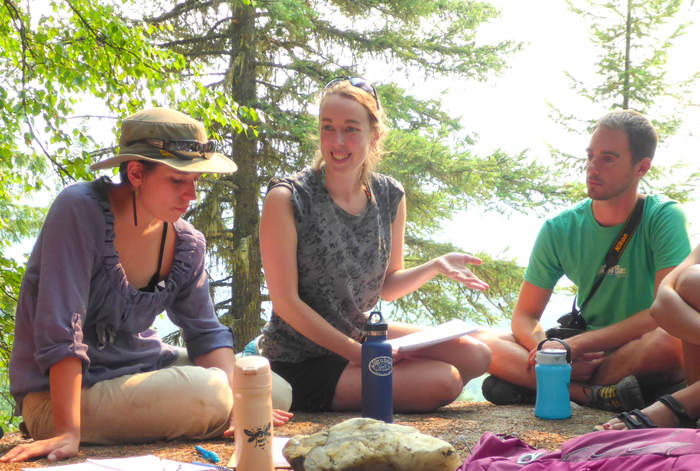
Erica’s SLLP project is to create a legal education resource that acts as a guide to existing laws that protect surface water, ground water, and riversheds. “My plan is to put together resources on legal tools currently in place for freshwater and river protection in BC, with the goal of having these resources easily accessible to the public and also turning them into an education tool that will allow me to educate other lawyers,” she explains. “These tools would be disseminated broadly and assist people who want to protect their water from the many threats this precious resource faces in BC. The information gathering stage will be really interesting, and there is a lot to learn. There are many levels of government to be aware of, including federal, provincial and Indigenous laws.”
While on the journey, Erica spread the word about West Coast Environmental Law’s free environmental legal aid services and learned about the important work that local environmental advocates were doing.
“One of the main things I took away from the journey was realizing the connections that communities along the river have to the river and to each other,” she says. “I knew about many of the threats the rivershed faces, such as declining salmon, logging, and mining effects, but it’s different to read about them than it is to see them, meet the people and be a part of those landscapes. My biggest takeaway from this trip is that you can’t practice environmental law only from a desk in Vancouver—you have to get out of the concept and into the reality.”
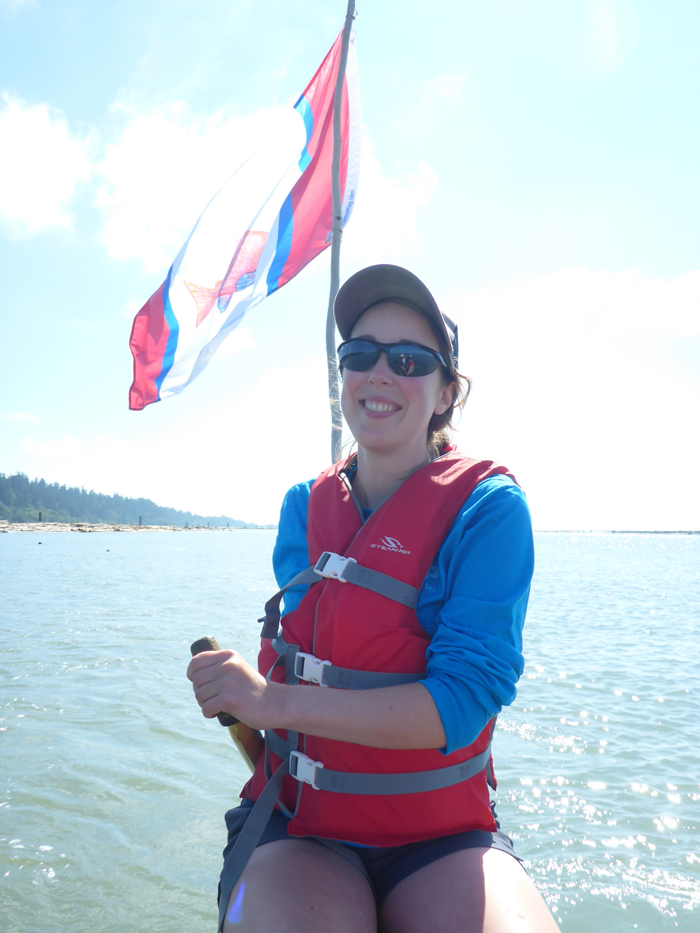
The SLLP journey helped Erica build relationships with the other participants, as well. “Being surrounded by such a great group of people who also care about the Fraser and these issues helped to keep me focused on my goals,” she says. “Spending a month with such committed, passionate, fun people was definitely the best part. I think our group was pretty rad.”
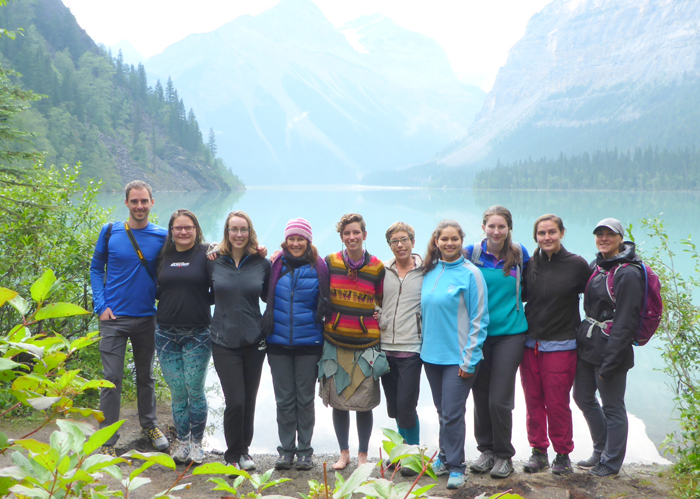
Another insight Erica had was that she could swim in the Fraser River. “Growing up in Vancouver, you don’t think about the Fraser River as something you want to touch,” she explains. “It’s perceived as so dirty down here and it is—industrial contamination and pollution from human activity concentrates in the mouth of the Fraser, right where I grew up,” she explains. “Up in the headwaters, the Fraser River water was an incredible glacier blue, and the awareness that it is the same river from the headwaters to the sea really made an impact on me.”
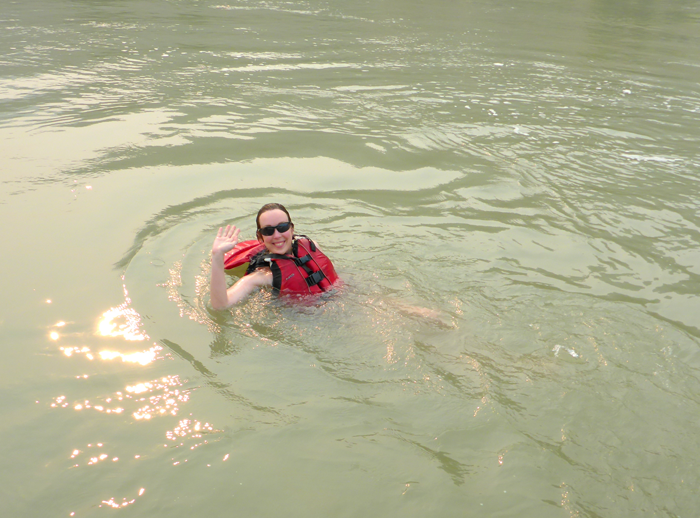
Other highlights along Erica’s river journey included wildlife encounters. “Seeing a grizzly bear in the Fraser headwaters, watching a white sturgeon breach in front of the Voyageur canoe in Hope, BC, and seeing seals venturing upriver as far as Hope, chasing salmon, was incredible,” she says. “The waterfall we visited near Hell’s Gate was amazing too. I loved swimming there.”
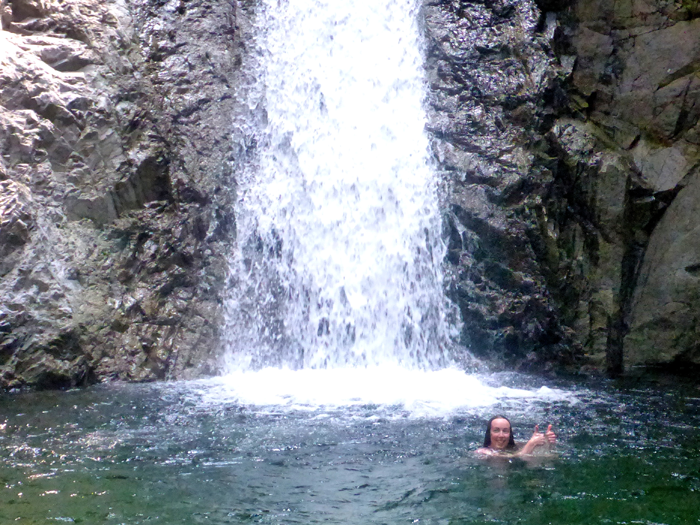
Erica frequently volunteered to set the pace paddling the Voyageur canoe or steering from the bow, and one of her challenging moments was guiding the raft down a stretch of rapids. “Steering the raft through the rapids was a little scary and challenging,” she says. “But Shane Turnbull, the Fraser River Rafting Expedition leader, was there guiding me, and it turned out to be exhilarating,” she says. “I tried to give the rudder back to him when we were nearing the bigger rapids, and everyone else yelled,‘Go for it!’ and he told me to go ahead. Even though it was a bit uncomfortable, I did it and it turned out to be amazing.”
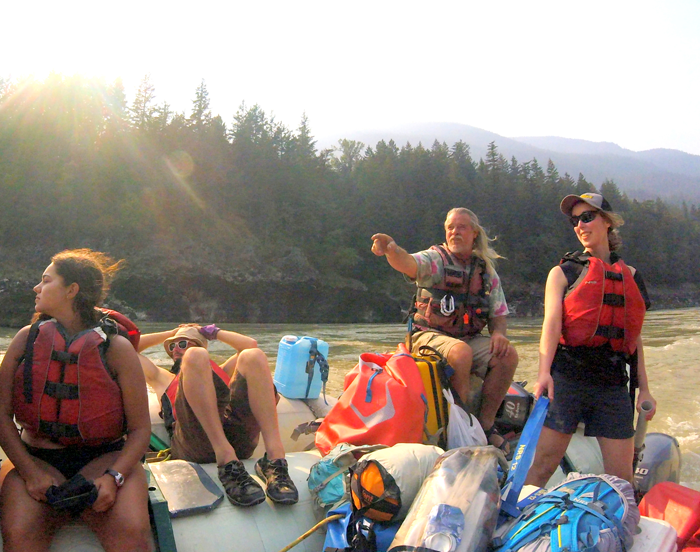
Erica says the biggest life-changing thing about the trip is feeling how happy she was out on the water with the group of people for that long. “I had never camped for that many days in a row and knowing that I can is great,” she says. “It also made me realize that I can have more balance in my life. A trip like this is so big and transformative in so many ways, I can say for sure that it’s given me a bigger community of people I care about and who also care about the river,” she adds. “People and relationships are the driving forces in life.”
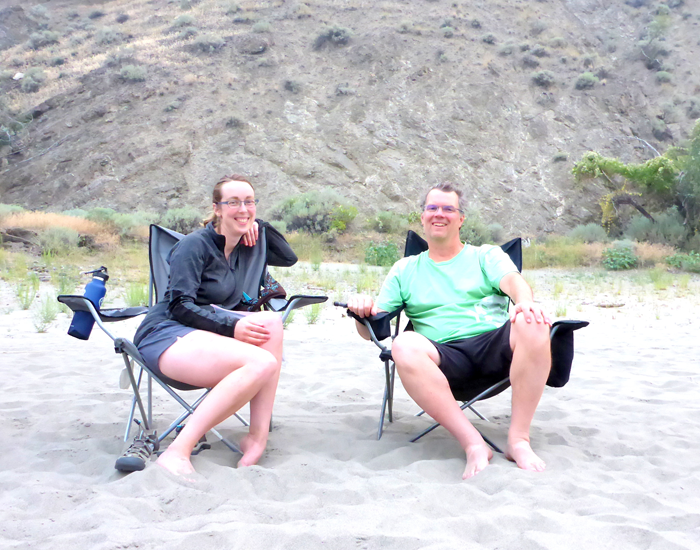
She also believes the trip will inspire her to shift her focus to riversheds and the myriad of issues around protecting them. “From the mountain, all the way to the ocean, holds everything that I love,” she says. “The rivershed concept is a really great organizing principle that allows you to focus while keeping the big picture in mind.”
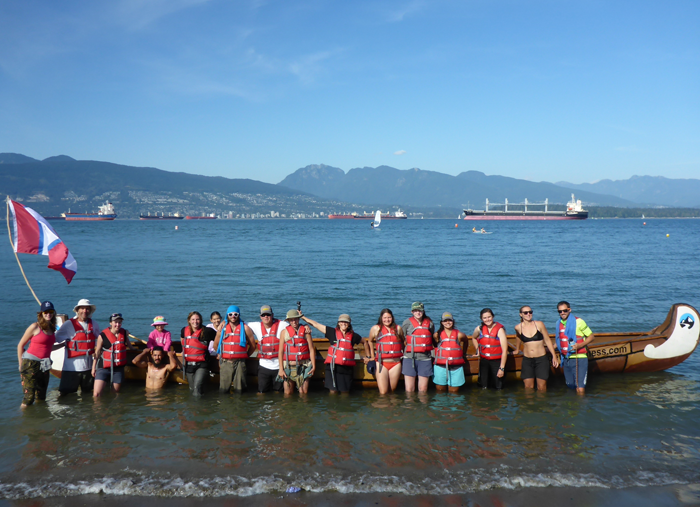
To read more about Erica’s journey with the RSBC 2018 Sustainable Living Leadership Program, see her blog post at: https://www.wcel.org/blog/headwaters-sea.

https://rivershed.com/get-involved/sustainable-living-leadership-program/about-the-sllp/
